Why Grocery Prices Are Unlikely to Go Down
Trump is tempering expectations on his campaign promise
“I won on groceries,” Donald Trump said in a recent interview, and he might be right. He spent a lot of time over the course of his campaign, promising that if he wins, he will fix inflation and bring down food prices.
He said things like:
“From the day I take the oath of office, we’ll rapidly drive prices down and make America affordable again… Prices will come down. You just watch. They’ll come down fast.”
“Grocery prices have skyrocketed. When I win, I will immediately bring prices down, starting on day one… We will drill, baby, drill. That’s going to bring down prices of everything.”
The day before the election, he vowed, "A vote for Trump means your groceries will be cheaper. So many people mention groceries — a beautiful but simple word: groceries. You don't think of it that way, but that's what they mention more than anything: 'my groceries.' "
And it’s understandable why any candidate would make campaign pledges about food costs: Americans report they’ve been particularly painful for them, and because food is a necessity, it’s difficult to cut back, the way you would on vacations or other extras.
But I’ve long said that we shouldn’t be expecting dramatic reductions in prices across the board. And now, Trump is perhaps admitting that I’ve been right all along.
In a lengthy Time Magazine interview, Trump was asked if his presidency would be a failure if the prices of groceries didn’t come down.
Trump replied: “I don't think so… I'd like to bring them down. It's hard to bring things down once they're up. You know, it's very hard.”
Why did grocery prices skyrocket?
The supply chain involves many moving parts, from farmers to railroads to large shipping vessels to truck drivers to warehouses.
Over the last several decades, companies have gotten good at balancing the costs of keeping warehouses full of goods, and then reordering to back fill as needed.
That has created a demand-driven supply chain, where generally smaller quantities of goods are kept in stores or warehouses, and then they’re shipped in as needed when supplies get low. But that fell apart during COVID, when shipping around the world was shut down for a time, and then slowed down significantly for months.
You remember the panic buying of toilet paper? Because when stores sold out, nobody knew when more would be coming.
That’s also when prices started to go up. Demand for goods was high–people were spending lots of time at home–but supplies were low. Businesses could suddenly charge a lot more because people were willing to pay higher prices for the stuff they needed. (And let’s face it, most people don’t have an easy alternative to many food staples.)
And since people pretty much stopped going to restaurants, grocery stores saw demand skyrocket. Add to that the fact that labor shortages were an issue, with workers sick or companies shut down due to Covid, and it became a perfect storm.
And we now know, according to a report from the Federal Trade Commission released earlier this year, that businesses took advantage of supply chain issues to raise prices, and keep them high.
According to the report, large stores like Walmart, Amazon, and Kroger, pushed and threatened suppliers, telling them they would fine them if products arrived late. So suppliers did everything they could to keep those big chains happy, while stiffing smaller stores. At the same time, those big companies raised prices for consumers, blaming supply chain issues.
The FTC said, “Some firms seem to have used rising costs as an opportunity to further hike prices to increase their profits, and profits remain elevated even as supply chain pressures have eased.”
In other words, businesses could just shrug their shoulders and say, “inflation,” or “supply chain issues,” while raising their prices, and consumers had little recourse, because everyone else was doing it too. In this inflationary psychological environment, consumers become conditioned to accept higher prices because they had few, if any alternatives, and it seemed plausible that businesses would need to raise prices, given the circumstances around the world.
Why bringing down prices likely won’t happen
One of Trump’s campaign promises was that he could lower food prices by bringing down the cost of energy prices (like drilling for oil in the US), increasing tariffs on international imports, and fixing the supply chain.
Let’s start with tariffs. Increasing tariffs on international products will raise prices for US consumers. This is not my opinion, this is the consensus from professional economists across the spectrum, and it’s supported by decades of research and studies. That’s because the tariffs are paid by the company *importing* the products, not the ones exporting them. The company bringing in the goods is going to have to pass along the higher production costs to consumers, which means increasing prices on the shelf.
According to the most recent numbers available from the USDA, nearly 60% of all fresh fruit and 38% of all fresh vegetables in the US are imported. And the majority of those imports come from Mexico. About half of all fruit imported into the US come from Mexico, and close to 70% of all vegetables.
If tariffs on products from Mexico increase, then US consumers are going to pay higher prices, not lower. And domestic farms can’t easily increase supply to undercut a higher priced product coming from Mexico. Mexico’s climate means it has a longer growing season, which allows it to produce much more than in most areas of the US.
But what about energy prices? Yes, higher energy prices contribute to higher grocery prices. Farm equipment and trucks used for shipping run on diesel. If diesel prices are up, those costs can be passed on to consumers in the form of higher prices.
Tariffs can affect energy prices as well. The US imports more than 50% of our petroleum (gas, diesel, crude oil) from Canada, so higher tariffs would likely raise gas prices for consumers, especially in certain parts of the country, like the upper Midwest. Of course those higher gas prices could also make shipping more expensive, which would be reflected in grocery prices.
So let’s say, for the sake of argument, that lower diesel prices will mean lower food prices. How would the government lower diesel prices?
Presidents can pressure oil companies to increase oil production. But these are private companies, so increasing production, which could also ultimately mean lower prices for them, is not necessarily something they will be eager to do. If the price of oil drops too low, companies might slow or stop production, which will bring prices up again.
Ultimately, the price of diesel is not set by the United States government, and there are limited levers that the government has to bring costs down. Right now US energy production (oil, gasoline, natural gas, coal, and renewable energy like solar and wind) is at the highest levels ever.
Increasing energy production might move the needle a bit, but if that was all it took to bring down energy prices, we would have seen that happen over the last couple of years.
Fixing supply chain issues *could* help bring the cost of goods down, but that would seem to indicate that the US government is somehow involved in the supply chain logistics of things like Lucky Charms, and they just are not – private industry is.
And there’s one other thing to keep in mind here: low inflation is not the same thing as deflation. The goal of economists is not to have deflation, which is the decrease of prices overall. It’s to have manageable inflation that grows slowly but steadily, about 2% per year. Inflation is the growth of prices. Deflation is generally only seen in an economy that’s in trouble, and often coincides with high unemployment and other serious economic issues.
Promising a drop in prices the day he comes into office was a winning message with voters. But saying and doing are two different things, and Trump is now being more realistic about what he will actually be able to do as president.



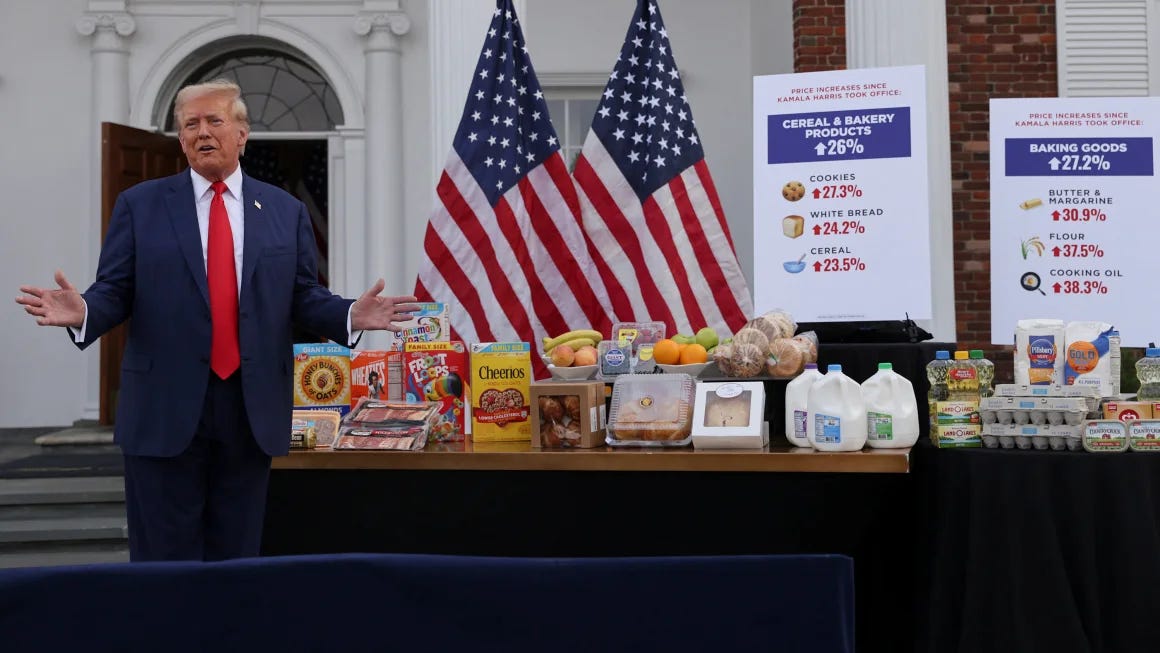
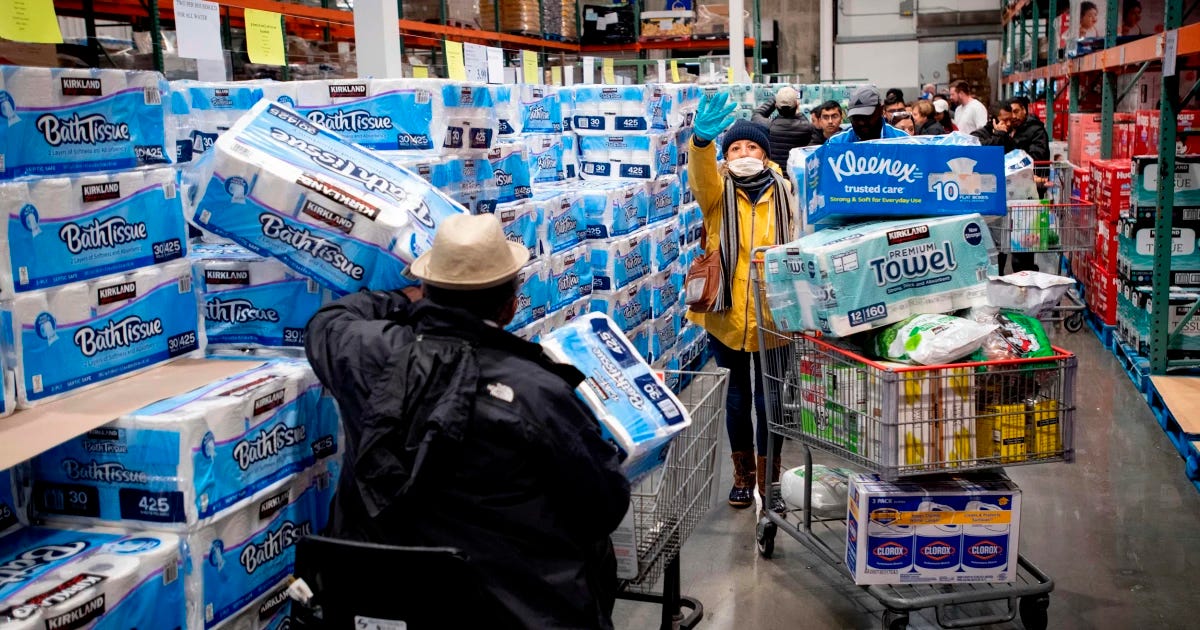
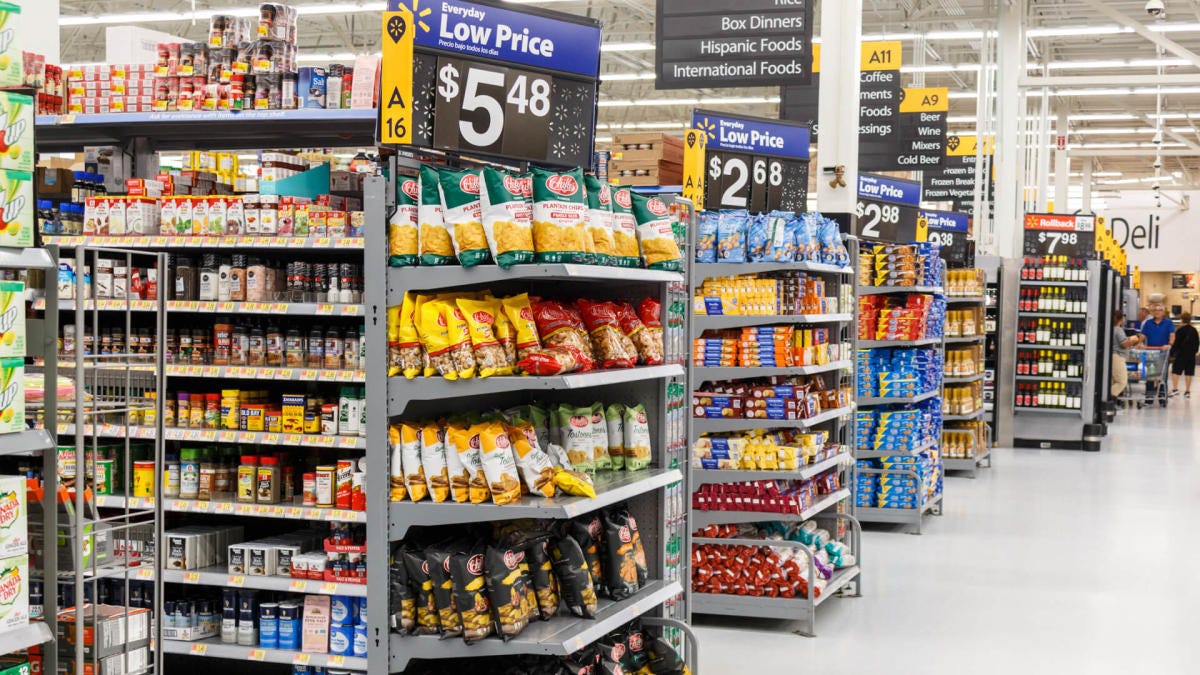
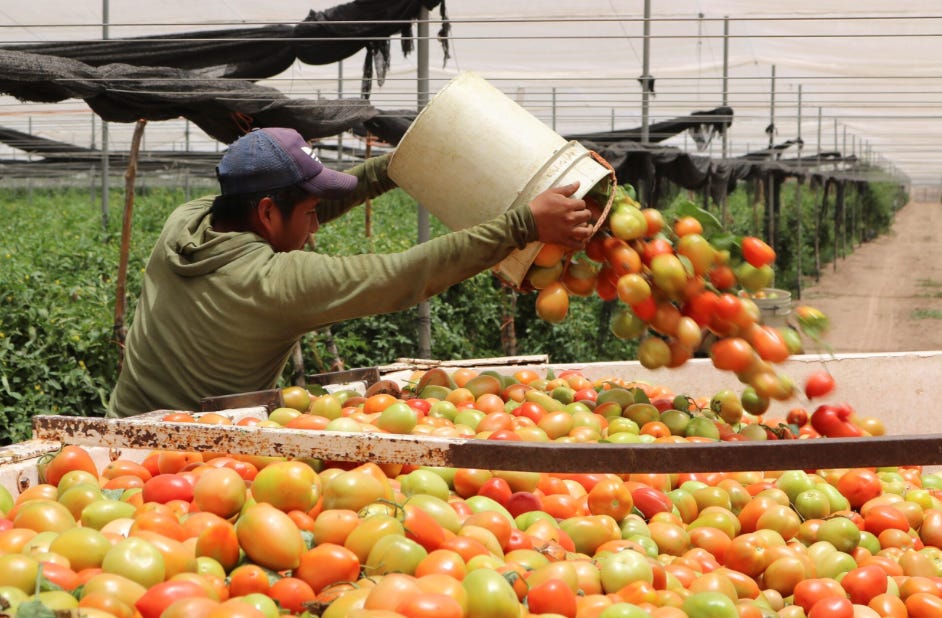
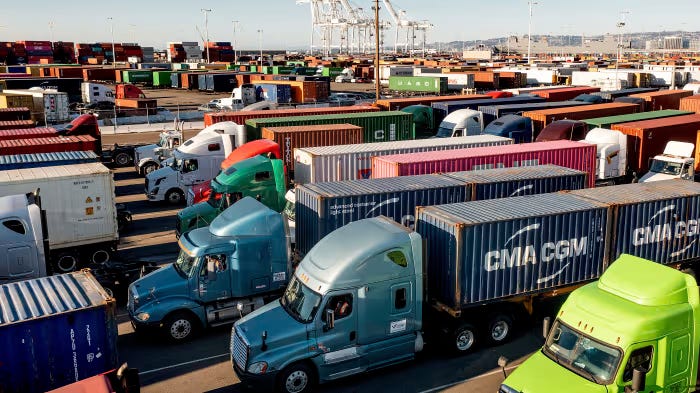
It’s painful to suffer the consequences of people’s choices… it’s like when the whole class loses the movie and has to run laps for a few kids and their poor behavior choices. 😭
Trump has a history of admitting that he says things that are not true. Remember when he privately said that he knew Covid was more contagious and deadly than the flu, even while his public speeches compared Covid to the flu and said public health officials were overreacting? He knows what people want to hear, and gives it to them even when it contradicts reality.
And yet you’ll hear people regularly say “At least he says exactly what thinks.” Even people who do not like him give him that benefit of the doubt. It’s almost as if people like him benefit from a double standard throughout their lives, being held responsible for nothing…